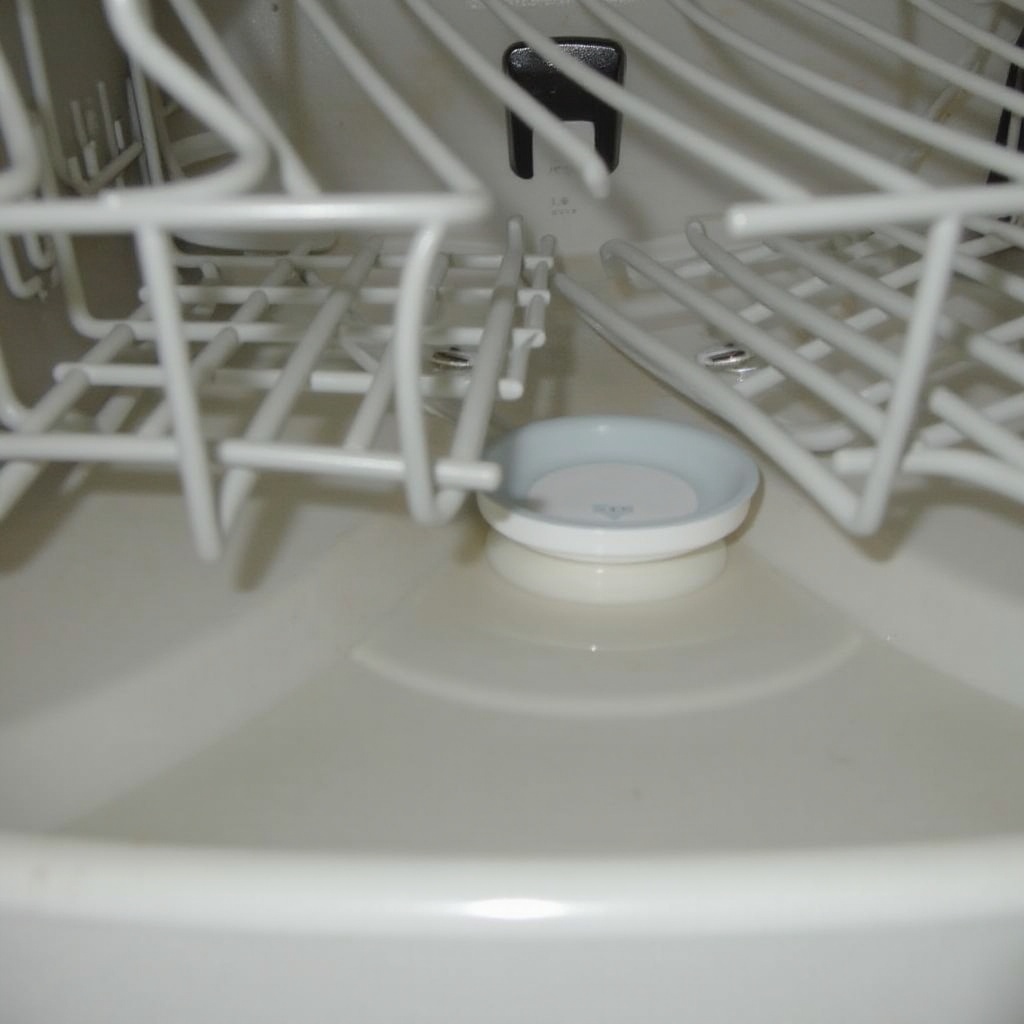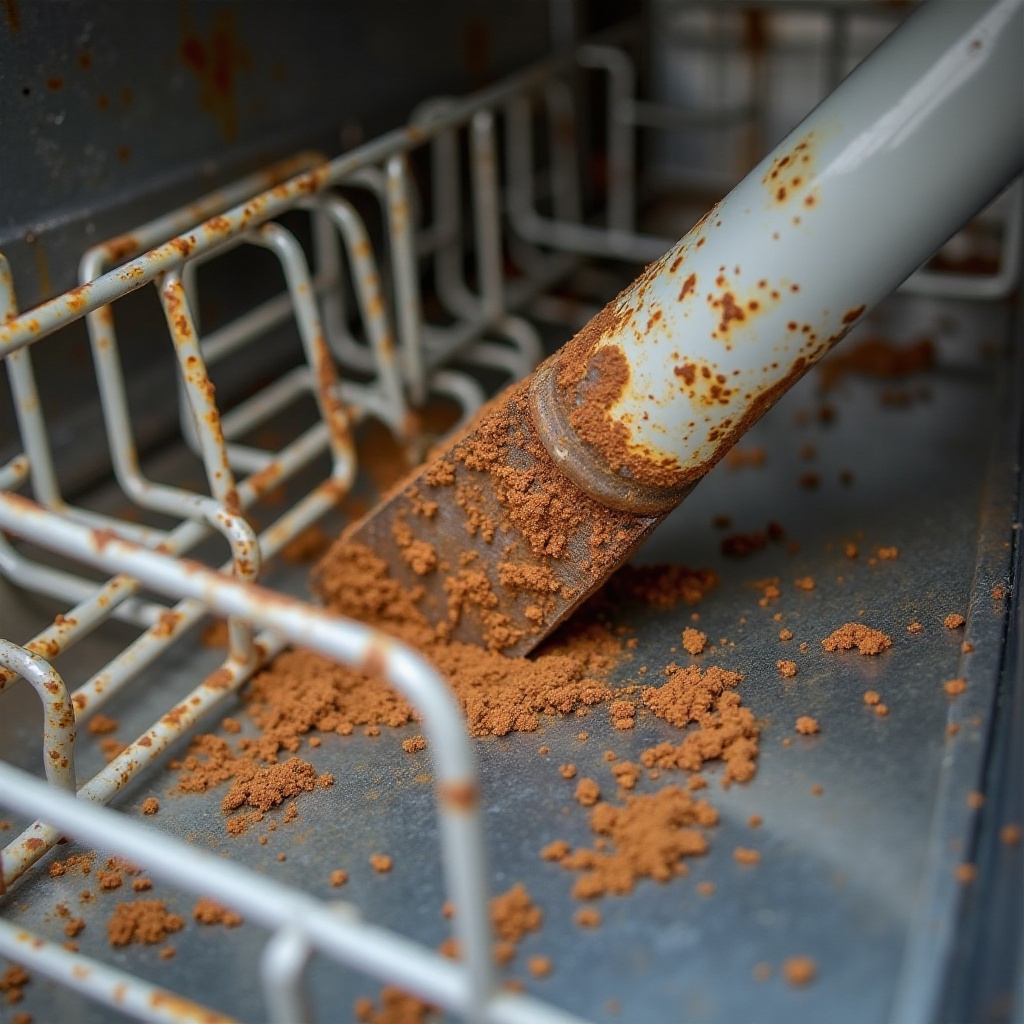Introduction
Rust in your dishwasher can be frustrating and concerning. Not only does it affect the aesthetic appeal of your appliance, but it can also compromise its functionality and hygiene. Unfortunately, rust is a common problem that many homeowners face. The good news is that rust in dishwashers is preventable and treatable with the right knowledge and care. This guide will walk you through understanding what causes rust, how to identify it, and the best ways to prevent and remove it, ensuring your dishwasher remains in excellent condition.

What Causes Rust in Dishwashers?
Various factors can contribute to the development of rust in your dishwasher. Identifying the root cause can help in taking the necessary preventive measures.
Hard Water and Mineral Deposits
Hard water contains high levels of minerals such as calcium and magnesium. These minerals can settle in your dishwasher, leading to deposits that encourage rust formation. Over time, these deposits can create an environment where metal parts of the dishwasher start to corrode.
Damaged or Exposed Metallic Parts
If the coatings on metal parts inside the dishwasher, like the racks or cutlery basket, become chipped or damaged, the exposed metal will be susceptible to rust. Rust can spread quickly from these initial spots if left untreated.
Moisture Buildup and Improper Drying
Dishwashers are designed to deal with water, but if moisture remains in the appliance for too long, it can lead to rust. Poor drying mechanisms or failure to unload the dishwasher promptly can leave the interior damp, promoting rust formation.
Identifying Rust in Your Dishwasher
To effectively deal with rust, you first need to know where and how to look for it in your dishwasher.
Common Signs of Rust
Rust typically appears as reddish-brown spots or stains. It can show up on dish racks, the interior lining, the door, and even on your dishes. Pay close attention to areas that frequently hold water or are prone to scratches.
Surface Rust vs. Deeper Issues
Surface rust is often less severe and can be treated with simple methods. However, rust that stems from deeper issues, such as structural damage to the appliance, may require professional intervention. It's essential to determine the extent of rust to apply the correct solution.

Preventative Measures to Avoid Rust
Preventing rust is more manageable and cost-effective than removing it. Here are some preventative measures you can adopt:
Choosing Rust-Free Accessories
Opt for dishwasher-safe, rust-resistant dish racks and silverware baskets. These accessories are often made of materials designed to withstand a wet environment, reducing the risk of rust.
Using Water Softeners and Descaling Agents
In areas with hard water, using a water softener can significantly reduce mineral deposits. Additionally, regularly running a descaling agent through your dishwasher can help remove any buildup, maintaining the appliance's efficiency.
Regular Cleaning and Maintenance Tips
- Run your dishwasher on an empty cycle with vinegar or a commercial dishwasher cleaner every month to keep it clean.
- Wipe down the interior after each use to remove any residual moisture.
- Check for and replace any damaged or worn-out parts promptly.
DIY Solutions for Existing Rust
If you find rust in your dishwasher, don't worry. There are several DIY solutions to handle it effectively.
Homemade Cleaning Solutions
Several household items can help remove rust:
- White Vinegar: Fill a spray bottle with white vinegar and apply it to the rusted areas. Let it sit for a while, then scrub with a brush.
- Baking Soda Paste: Create a paste using baking soda and water. Apply it to the rust and scrub with a non-abrasive brush or sponge.
Step-by-Step Rust Removal Guide
- Remove Rusty Parts: Take out any removable parts that show signs of rust.
- Apply Cleaning Solution: Use your chosen cleaning solution (vinegar, baking soda paste) on the affected areas.
- Scrub Rust: Using a soft-bristle brush, gently scrub the rust stains.
- Rinse and Dry: Rinse the cleaned areas thoroughly with water and dry them completely to prevent further rusting.
- Replace Parts If Needed: If some parts are beyond cleaning, consider replacing them with new, rust-resistant versions.
When to Seek Professional Help
While many rust issues can be handled at home, some situations may require professional assistance.
Indicators for Professional Repair
- Persistent rust that keeps reappearing despite regular cleaning.
- Structural rust damage affecting the dishwasher's functionality.
- Rust on critical components like the motor or electrical parts.
Choosing a Reliable Service Provider
When opting for professional help, choose a reputable repair service. Look for providers with good reviews, reasonable quotes, and warranty offers for their work.

Conclusion
Rust in your dishwasher is a manageable problem if you take prompt and consistent care. By understanding its causes, identifying early signs, adopting preventive measures, and applying effective DIY solutions, you can keep your dishwasher in pristine condition. For more severe cases, don't hesitate to seek professional help to ensure your appliance remains in optimal working order.
Frequently Asked Questions
Can vinegar remove rust from my dishwasher?
Yes, vinegar is an effective natural cleaner for removing rust. Fill a spray bottle with white vinegar, spray it on the rust spots, let it sit for a while, and then scrub the area with a soft brush.
Is rust in the dishwasher dangerous for my dishes?
While surface rust might not be immediately dangerous, it can become problematic over time. Rust can transfer to your dishes, potentially leading to contamination. It's best to address rust issues promptly.
How often should I clean my dishwasher to prevent rust?
Regular monthly maintenance is recommended. Running an empty cycle with white vinegar or a commercial dishwasher cleaner each month can help prevent mineral buildup and rust formation. Additionally, daily practices like wiping down the interior can also help.
